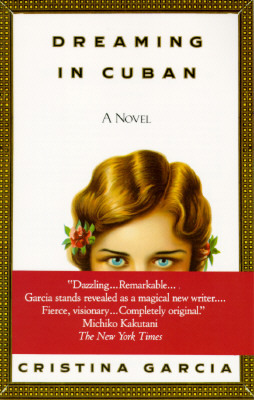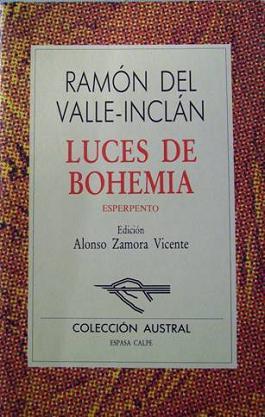“Dreaming in Cuban,” Cristina Garcia
Although I had to read this for class, “Dreaming in Cuban” was a very interesting novel (not that novels for class can’t be; they just have a bad reputation) about one family, half of whom immigrated from Cuba to New York and the other half of whom are still in Cuba. It takes place during the 1970s, during the Cuban Revolution with Castro and the U.S.’s bicentennial. “Dreaming in Cuban” is narrated largely by the women in the family: Celia, the matriarch; her daughters, Lourdes and Felicia; and their daughters, Pilar, Luz, and Milagro; and focuses on the difficulties of living between two cultures and also on the problem of depending on memories or generally-defined history.

Aunque tuve que leerlo para una clase, “Dreaming in Cuban” fue un libro muy interesante (no que los libros para clases no pueden ser; sino tienen una reputación mala) que se trata de una familia, una mitad la quien se inmigró de Cuba a Nueva York y la otra mitad la quien todavía están en Cuba. Se tiene lugar durante los años 1970, durante la Revolución Cubana con Castro, y también el bicentenario de los EEUU. “Dreaming in Cuban” está narrado por las mujeres de la familia: Celia, la matriarca; sus hijas, Lourdes y Felicia; y sus hijas, Pilar, Luz y Milagro; y se enfoca en las dificultades de vivir entre dos culturas y también en el problema de depender en las memorias o la historia como es definida generalmente.
~~~
“Luces de Bohemia,” Ramón Valle-Inclán
"Luces de Bohemia,“ which translates to "Bohemian Light,” is about a blind writer named Max who is struggling to survive in Spanish society. He is referred to as Spain’s ‘first great poet’ but no one will publish his work nor remember him, and he is convinced that this is because he is blind. He believes that Spanish society is ‘grotesque’ because it only acknowledges those artists who fit its idea of what an artist should be: someone without a deformity who writes socially acceptable things. Valle-Inclán was making a huge observation about Spanish society with this play, and he also created the ‘esperpento,’ a classification defined as a tragedy which is used as a concave mirror to reflect back the awful things about society.

"Luces de Bohemia" trata de un poeta ciego que se llama Max, el quien está luchando por sobrevivir en la sociedad española. Se refiere a como ‘el primer poeta de España’ pero nadie publicará sus obras ni le acordará, y está convencido que eso es porque está ciego. Cree que la sociedad española es ‘grotesca’ porque solo se reconoce esos artistas los que son adecuados de lo que los artistas deben ser: sin deformidades y quien escribe cosas aceptables. Valle-Inclán hizo una observación grande sobre la sociedad española con este teatro, y también creó el ‘esperpento,’ una clasificación que se define como una tragedia lo que se usa como un espejo cóncavo para reflejar las cosas horribles de la sociedad.